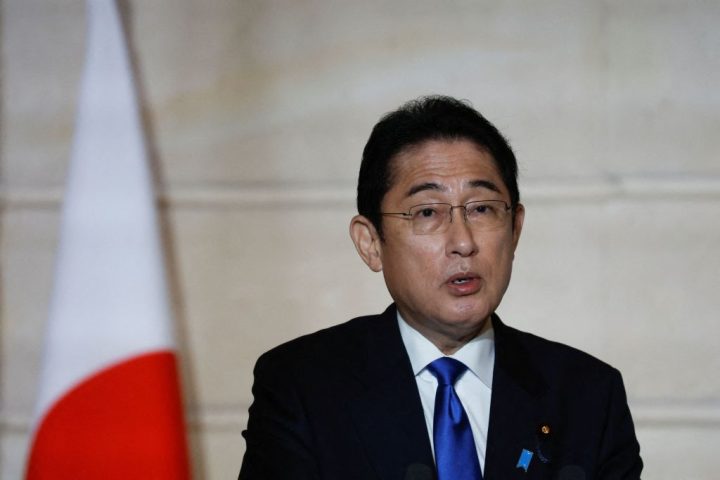The end of the second world war saw the defeated aggressors Germany and Japan accept moral capitulation and begin new international lives as liberal democratic and largely pacifist states bent on cooperation not coercion. But over the last few years an increasingly unsettled international order has emerged to test the pacifism of the fourth and third largest economic powers.
Russia’s aggression against Ukraine has finally cajoled a reluctant Germany out of its semi-neutral stance. As war returned to the European continent, Berlin has bowed to Western pressure to release its Leopard tanks to a martyrised Ukraine. No longer virgo intacta, Berlin has forfeited its 80 year state of innocence.
Japan has reacted pragmatically and wisely to the new international unsettlement on its own terms
The great unsettling of the international order has not spared the Indopacific region – Hong Kong, North Korea, Taiwan, China. Here Japan – unlike purblind and fence-sitting Germany – spotted the straws in the wind a decade ago and is gradually shedding its international modesty. Committed as ever to upholding the rule of law and above all the international status quo it has, unlike Germany, taken steps of its own volition to protect international security. Joining the dots of Tokyo’s numerous international decisions over the last few years draws a picture of an increasingly powerful Western military ally.
For years Japan sought to contribute to international security through limited peace-keeping cooperation and official development assistance, rather than military power. Article 9 of the constitution bans the use of force in international conflict. Until 2015, collective self-defence was banned. Now the new December 2023 defence strategy will see Japan acquire a pre-emptive counter-strike capability, a move which the influential Federation of Bar Associations considers anti-constitutional. While insisting its doctrine remains ‘defensive’, the Japanese government continues to jack up its military posture.
Japan is doubling defence spending to 2 per cent of GDP by 2027. Its status as the world’s third economic power ensures its defence budget will emerge as the world’s third largest, roughly twice that of present day UK or France.
It is also tethering itself more firmly to western liberal democracies. Other than its longstanding total commitment to its American ally, it has extended defence agreements to the likes of Australia and most recently Britain. The British Government’s 2021 Strategic Defence Review states that the UK’s defence relationship with Japan had ‘deepened significantly’, making Japan ‘one of our closest strategic partners’. Back in 1902 the Anglo-Japanese treaty was the first Britain signed as it gradually emerged from its Victorian ‘splendid isolation’. On 13 January 2023 the two countries signed the UK-Japan defence agreement their ‘“most important defence treaty” for over a hundred years’. Meanwhile on 9 December 2022 Japan, the UK and Italy announced their agreement to develop a sixth-generation stealth, and potentially unmanned, fighter aircraft (GCAP), the first time Tokyo has partnered with Europeans on such sophisticated military equipment.
What has provoked this pragmatic inflexion in Japan’s international stance? North Korea has become a regional nuclear threat. Xi Jinping is accelerating China’s push to formidable military status, capable of neutralising US and allied forces and deploying into the Pacific. With a defence budget five times Japan’s, China continues annually to acquire the tonnage of the entire Royal Australian Navy, making the Taiwan question particularly menacing.
While a Westerner’s mental map fails to grasp fully the scale of Russia’s Pacific power with its formidable Vladivostok based fleet, Tokyo does. How could it not, when the two states have a longstanding conflict over the jointly claimed Kuril Islands. Though the 1905 Russo-Japanese War is a distant memory, Moscow’s unprovoked aggression of Ukraine is there to jog it. Even more so is the Kremlin’s thinly veiled threat to use nuclear force in Ukraine, anathema for a Hiroshima-scarred Japan. Little wonder that Japan’s National Security Strategy, published only a month ago, hints at Chinese threats, but is forthright in its assessment of its other regional neighbour: ‘Russia continues to repeat words and actions that could be interpreted as threats to use nuclear weapons.’
Despite Japan’s traditional consensual diplomacy, Tokyo has followed through on its assessment of Russia, siding with the West. The international authority on Japanese defence and security, Guibourg Delamotte, has detailed how the line between Japan’s diplomacy and defence is now blurred. Hitherto Germany and Japan were neutralist creatures of the second world war. But unlike Germany, Japan has reacted pragmatically and wisely to the new international unsettlement and has done so on its own terms.







Comments